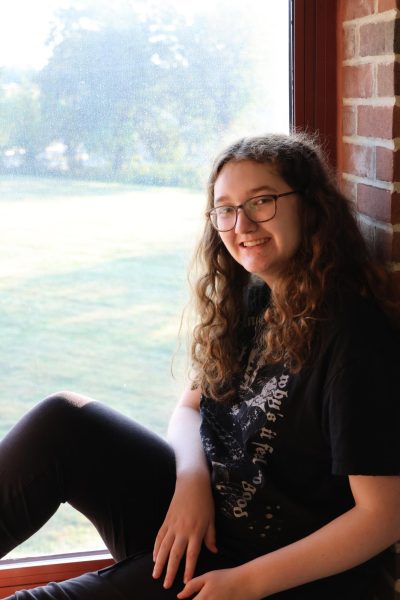Beastly Beauty by Jennifer Donnelly is the final book in her twisted fairytale trilogy. The two books that precede it are Stepsister and Poisoned, which feature retellings of Cinderella and Snow White, but focus on alternate perspectives and plot points. The twist in Beastly Beauty is that the beauty is the man (Beau) and the beast is the woman (Arabella). This novel has many excellent features, including character’s names, changes from the original fairytale, the characters and their complexities, and its message. These aspects combined create a fabulous tale of self-love and forgiveness, boosted by Donnelly’s beautiful, prose-like writing.
One unique and interesting aspect about this book is the characters’ names. The beauty in this book is called “Beau,” the male equivalent of the name “Belle,” which means beauty in French. Arabella’s name still has “bell” in it to show that she is beautiful in her own way, but it’s not the main aspect of her character. Arabella’s ladies-in-waiting have the most unique names. They are all anagrams of the emotion they represent, for example Lady Espidra is despair and Lady Rega is rage. These emotions are portrayed expertly, with Lady Rega breaking things and Lady Elge always being excited.
Besides the obvious gender-swap, other plot points are cleverly changed to make this novel even more engaging. Instead of turning into furniture, Arabella’s servants either remain unchanged or are transformed into clockwork figures, figurines that come out on the clock’s band at midnight. Instead of being cursed by a sorceress for not being generous, Arabella is cursed by a clockmaker for lashing out and not being a “proper” lady. A huge difference is that Arabella is not always a beast, instead she only turns into one at midnight and remains that way until sunrise. And rather than the beauty, Beau, sacrificing himself by staying at the castle, his thieving gang leaves him behind. For this reason, Beau doesn’t try to make the best of his situation, he repeatedly tries to escape.
Another excellent component of this book is its characters. As traditional fairytales are typically quite short, characters are not well developed and therefore not compelling. Plus, many characters are victims of circumstance, they don’t have any agency. Just as in Stepsister and Poisoned, in Beastly Beauty, Jennifer Donnelly creates interesting characters who make their own decisions and suffer both the victories and consequences of them.
The two protagonists of this book are Beau and Arabella. Beau, short for Beauregard, is more than just the beauty in this story. He is part of a thieving gang due to being saved from death by the gang leader as a child. However, he is trying to escape this life and make a new one for himself and his younger brother, Matteo. Beau is, as his name suggests, incredibly beautiful and uses that trait to seduce the mistress of the house they are robbing to get information on where the valuables are hidden.
Arabella is a Duke’s daughter with a passion for architecture. However, as a young woman in the eighteenth century, her passions are looked down upon and thought to be “unladylike.” So is her show of emotions, something her parents tell her to suppress. When she lashes out at her betrothed, she gets cursed into becoming a beast each night. As time passes, she loses hope and becomes the cold and abrasive character the reader meets in the beginning of the book.
The message of this book is super powerful and relevant: to love yourself and your passions and to not let others stop you from doing the things you enjoy. This is especially important in a culture when women are still told to stop being “too emotional” and have their hobbies disregarded. However, it is also an important message for others to hold close to their heart as well. In this novel, both Arabella and Beau learn to embrace their interests and themselves. This relevant theme helps the reader better love themself, both by accepting and forgiving themself. In the epilogue, Donnelly addresses the reader themself and writes to them, “Take the pen… and then, from this day forward… write your own story.”




























































































